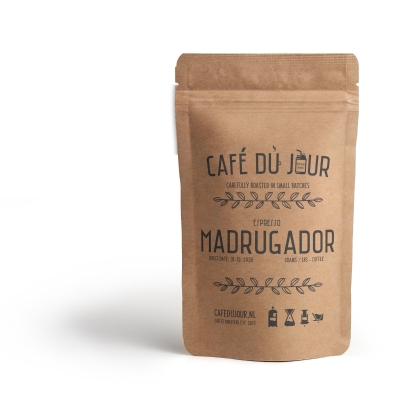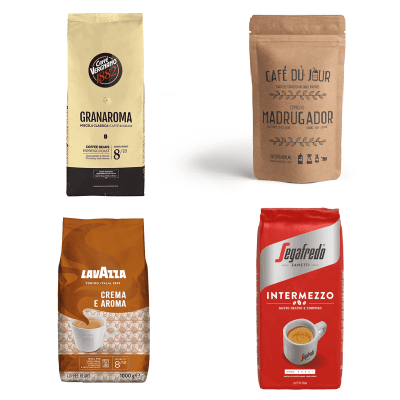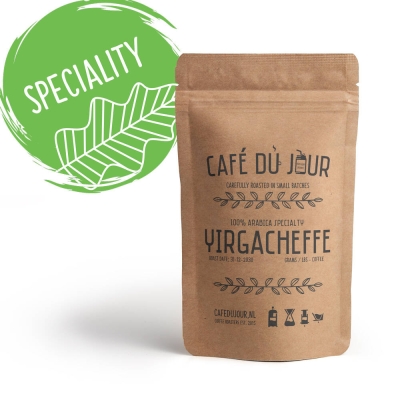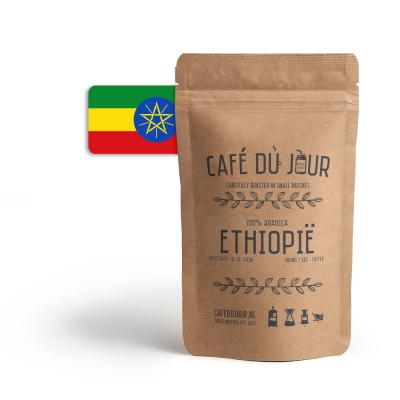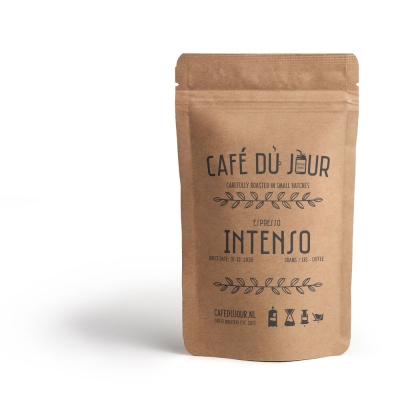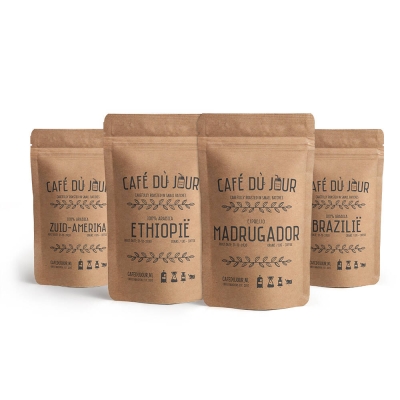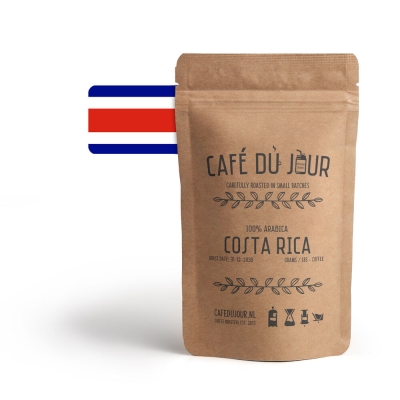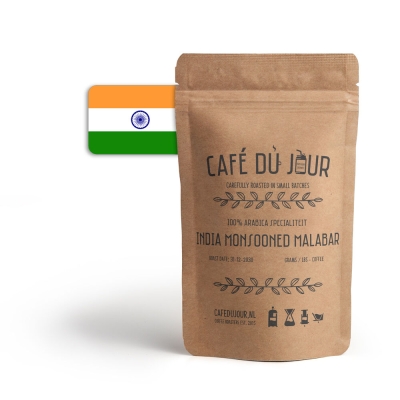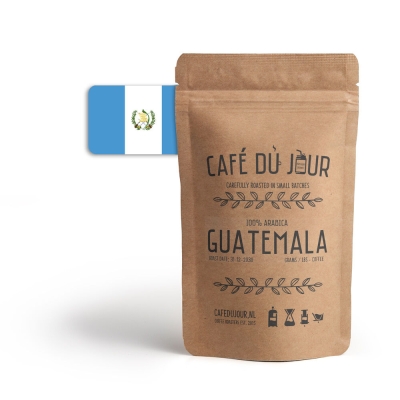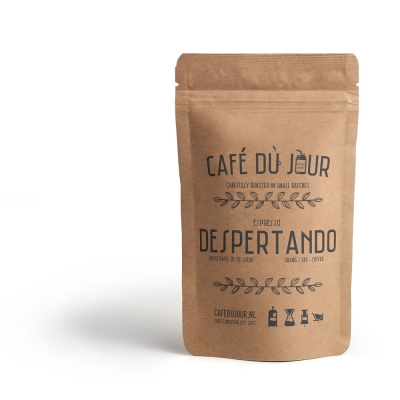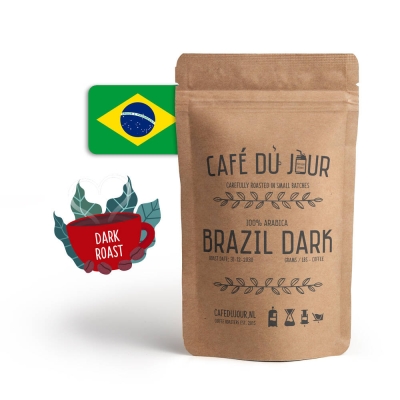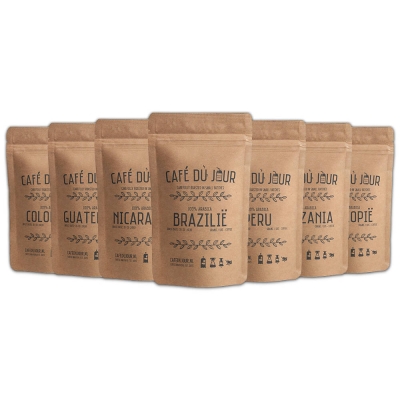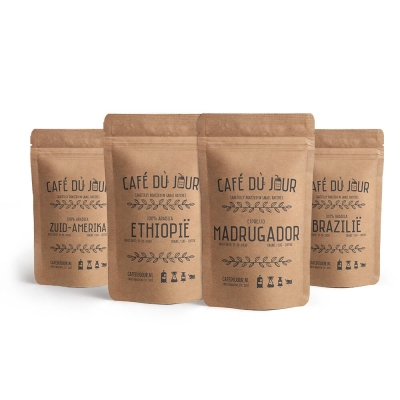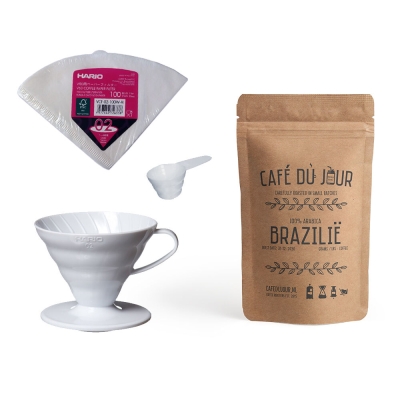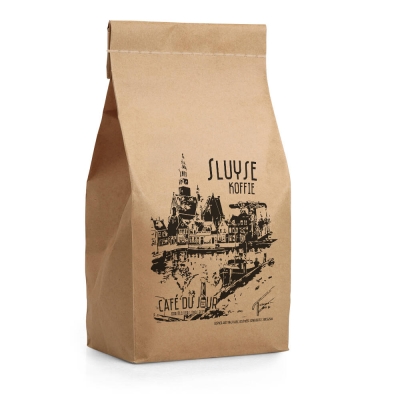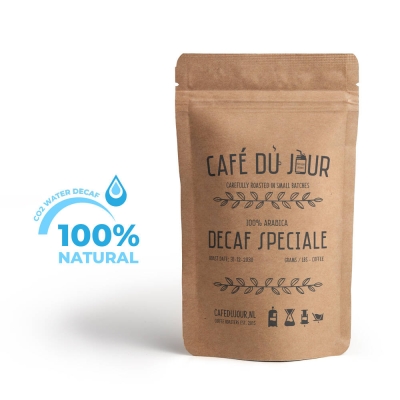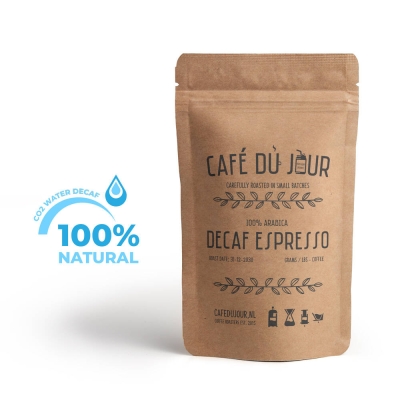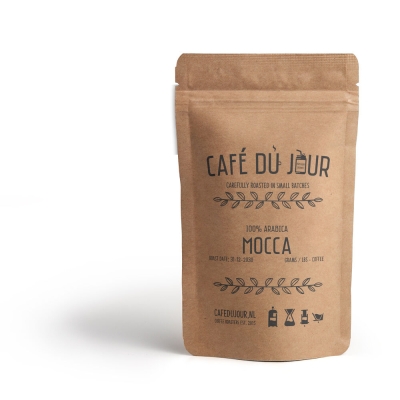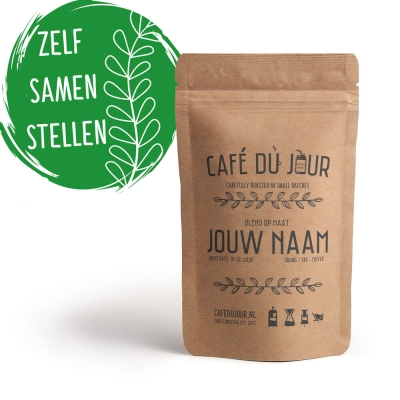Turkish coffee
Turkish tradition is all about brewing the most delicious Turkish coffee. It all begins with selecting the perfect ground coffee. Looking for top quality? Opt for finely ground coffee beans.

- Espresso Madrugador - Fresh coffee beansChocolaty, Fruity, Spicy 8 - StrongAs low as 6.9518.95 / kg
- Yirgacheffe Speciality 100% arabica - Fresh coffee beansFloral, Chocolaty, Fruity, Honey 10 - Very strongAs low as 8.9524.65 / kg
- Ethiopia 100% arabica - Fresh coffee beansFloral, Fruity, Spicy 8 - StrongAs low as 6.9518.95 / kg
- Bestsellers Fresh Coffee - Fresh Coffee Beans - 4 x 1 kgVarious flavours 8 - Strong69.9417.48 / kg
- South America 100% arabica - Fresh coffee beansChocolaty, Spicy 8 - StrongAs low as 6.9520.85 / kg
- India Monsooned Malabar 100% arabica - Fresh coffee beansChocolaty, Nutty, Tobacco 10 - Very strongAs low as 8.9524.65 / kg
- Peru 100% arabica - Fresh coffee beansFloral, Woody, Caramel, Cinnamon 7 - StrongAs low as 7.9521.80 / kg
- Despertando Espresso - Fresh coffee beansFloral, Chocolaty, Fiery 8 - StrongAs low as 6.9520.85 / kg
- Dark Roast Brazil 100% Arabica - Fresh Coffee BeansSpicy, Nutty 10 - Very strongAs low as 6.9520.85 / kg
- Bregman's Blend Brazilian Manners - Fresh coffee beansChocolaty, Nutty 8 - StrongAs low as 8.9518.00 / kg
- Nicaragua 100% arabica - Fresh coffee beansFruity, Nutty, Caramel 8 - StrongAs low as 7.9521.80 / kg
- Hario V60 starter pack - dripper, measuring spoon, filters and coffee - 2 to 4 cupsHario
19.59
0.00 / piece - Cerrado 100% arabica - Fresh coffee beansChocolaty, Nutty, Vanilla 5 - RegularAs low as 7.9520.85 / kg
- Raja Gayo Speciality 100% arabica - Fresh coffee beansChocolaty, Spicy 8 - StrongAs low as 8.9524.65 / kg
- Gourmet 100% arabica - Fresh coffee beansSpicy, Nutty, Woody, Licorice 6 - RegularAs low as 8.9523.70 / kg
- Decaf Espresso 100% Arabica - Fresh coffee beansChocolaty, Nutty 8 - StrongAs low as 8.9525.60 / kg
- Blending Coffee Beans Yourself - Fresh coffee beans - 1 kgVarious flavours 10 - Very strongAs low as 22.7522.75 / kg
What is Turkish coffee?
Turkish coffee is essentially strong coffee, akin to espresso, but it's prepared uniquely by leaving the coffee grounds in the cup. You don't drink the grounds, though; they settle at the bottom.
Even before the Dutch popularised coffee globally from West Africa and Yemen, it was enjoyed in the Arab world. The Ottomans brought this delightful brew to Istanbul, where the first coffeehouse opened in 1554 in the Tahtakale district. Here, coffee drinking became a cultural event. Soon, more coffeehouses sprung up, serving as social hubs for both the elite and the common folk. Today, Turkish coffeehouses are still vibrant gathering spots, often for enjoying board games over a delightful cup of tea (not always coffee). Modern cafés offer a great venue to relish Turkish coffee, or you could make it at home. Want to know how? We'll tell you in a bit!
Making your own Turkish coffee?
Turkish coffee, compared to regular coffee, is roasted briefly and ground to a very fine powder. Begin by placing the coffee and an equal amount of sugar into a cezve, and then add water. Heat the mixture slowly until it boils. Once it has boiled, pour it into an espresso cup, grounds included. Since Turkish coffee is quite strong, it's often served with a glass of water. Remember, you're not supposed to drink the grounds; let them settle in the cup.
Requirements
- A cezve
- A coffee grinder
- Turkish coffee (finely ground)
- Small espresso cups
Make the most delicious Turkish coffee yourself with the instructions below:
Step 1 - The Grind: Use very finely ground beans to make Turkish coffee. A Turkish coffee grinder, known as 'the king of coffee grinders', is perfect for this. It's an elongated, heavy device made of bronze and copper. You place the beans under the screw-off cap. The grind is crucial because if the coffee isn't ground fine enough, you won't get that thick, dark foam layer. Many espresso grinders and machines can't achieve the fine grind needed for Turkish coffee, so buying pre-ground coffee from a coffee shop might be a good alternative.
Step 2 - Cezve: Pour about 50 ml of water per cup into the cezve, a special brass or copper jug with a long handle. Add sugar for extra flavor (Turks often prefer sweet coffee) and stir until it dissolves.
Step 3 - Heating: Heat the mix, then remove the cezve from the heat. Add a teaspoon of coffee, plus an additional teaspoon for each person. Place the cezve back on the heat and bring it to a boil twice. In between, remove it from the heat, skim off the foam, and stir well.
Step 4 - Settle: Before serving, add a teaspoon of cold water to help the coffee grounds settle at the bottom.
Step 5 - Serving: Pour the unfiltered coffee into small cups and enjoy!
TIP 1: Never stir while boiling, as it disrupts the foam layer.
TIP 2: Keep a close watch! If the coffee boils over, your cup will taste bitter!
TIP 3: In many regions, Turkish coffee is enhanced with spices like cardamom and cinnamon. Curious about the taste? Add these finely ground spices to your coffee.
The secret of Turkish coffee: bring the Turkish feeling home!
The secret of authentic Turkish coffee lies in its preparation. Use a long-handled Turkish coffee pot, known as a cezve, to prepare it. Add sugar to your taste and place the pot on a hot surface (a gas stove works well).
As the coffee heats, you can add spices like cardamom for extra flavor. The aroma wafting from the bronze jug is absolutely mesmerising.
When the coffee begins to simmer and foam, you know you're on your way to making the best Turkish coffee. Pour it into small cups, but be cautious about stirring while it's boiling, as this will ruin the froth.
The art of making Turkish coffee is all in the details. Let the coffee settle slowly and remember not to drink it all the way through, leaving the grounds in the cup. Savour every sip from your small cup and let the rich flavour enchant you.
10 facts about Turkish coffee
- Discovered in Ethiopia: This drink didn't originate in Turkey. It was first discovered in the Kaffa region of Ethiopia and spread to Yemen in the 15th century. From there, coffee made its way to Istanbul and then across Europe. You could say Europeans inherited coffee culture from the Ottomans.
- Ground coffee beans: To brew Turkish coffee, you need very finely ground beans, cold water, and possibly sugar. You'll also need a cezve — a special pot with a long handle, usually made from copper or brass, designed specifically for Turkish coffee. This slow-boiling method creates a thick layer of foam, a technique that dates back to the Ottoman period, making the coffee distinctively Turkish.
- Foam is quality: Foam really sets the quality apart. In Turkish culture, a coffee without foam is not well regarded. A nice, thick froth indicates a high-quality brew. You'll often hear requests for a rich layer of froth when people order Turkish coffee. The key is to boil the coffee slowly and steadily to achieve that notable layer.
- Glass of water: A glass of water is always served with coffee, serving multiple purposes. Turks use it as a polite way to gauge if guests are hungry, as drinking water first indicates as much. Secondly, water is consumed both before and after the coffee to enhance its taste and clear the palate. Historically, during the Ottoman era, it was used to check for poisoning, as water mixed with poisoned coffee would bubble.
- Coffee grounds: In Turkish culture, reading coffee grounds to foresee the future is a popular practice. After finishing your cup, place the saucer on top, make a wish, and turn the cup over. The fortune teller will then interpret the patterns formed by the grounds. Today, mobile apps in Turkey allow you to send pics of your coffee grounds to a professional fortune teller.
- Salt in coffee: Coffee plays a crucial role in traditional courtship customs; for instance, when a young man seeks a woman's hand in marriage. The bride-to-be prepares coffee with salt instead of sugar to observe the groom's reaction. If he reacts angrily, he's deemed unsuitable; if he drinks it calmly, he's considered a good match. Although traditions evolve, historically, too much salt implied the woman's disinterest in marriage.
- 'Lokum' - Turkish delight: Traditionally, Turkish coffee was served with Turkish delight, or 'lokum', as a measure of the guest's satisfaction. If pleased, guests would consume the delight. Though this custom has faded, Turkish coffee is still served with treats like chocolates.
- It is healthy: Turkish coffee is a potent antioxidant with many health benefits. It helps regulate blood cholesterol levels, reduces cancer risk, and can alleviate headaches.
- Intangible heritage: This ancient beverage is protected by UNESCO, having been added to the list of Intangible Cultural Heritage of Humanity in 2013 for its unique brewing and preparation method.
- Sand: In the Netherlands, we mostly use electric coffee makers, but in the Middle East, coffee is sometimes brewed in small pots in the sand. This sand brewing assures even heating, enhancing the coffee's flavour.
Buy Turkish coffee at Café du Jour
At Café du Jour, we cherish the art of making Turkish coffee. Our finely ground coffee is carefully selected, allowing the rich taste to shine. Order today and explore the magic of Turkish coffee for yourself!













